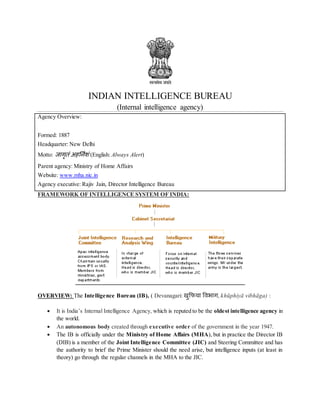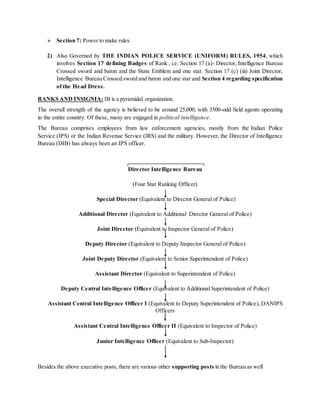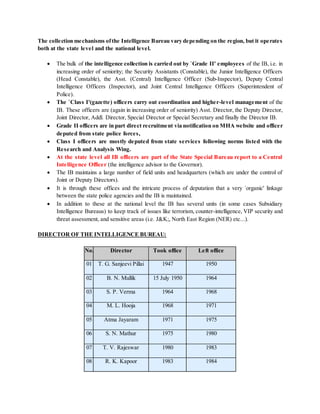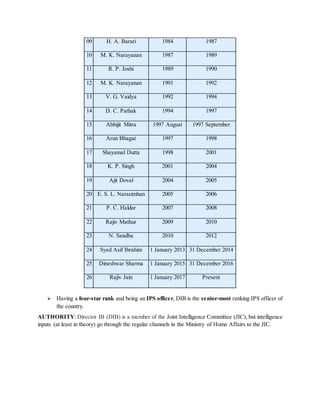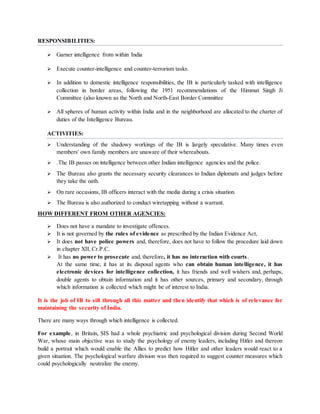The Intelligence Bureau (IB) is India's internal intelligence agency, formed in 1887. It operates under the Ministry of Home Affairs and collects domestic intelligence and conducts counter-intelligence and counter-terrorism operations. The IB has faced legal challenges regarding its lack of statutory authority but the Supreme Court has upheld its operations. The agency employs over 25,000 personnel across India to covertly gather intelligence through human and technical means.
